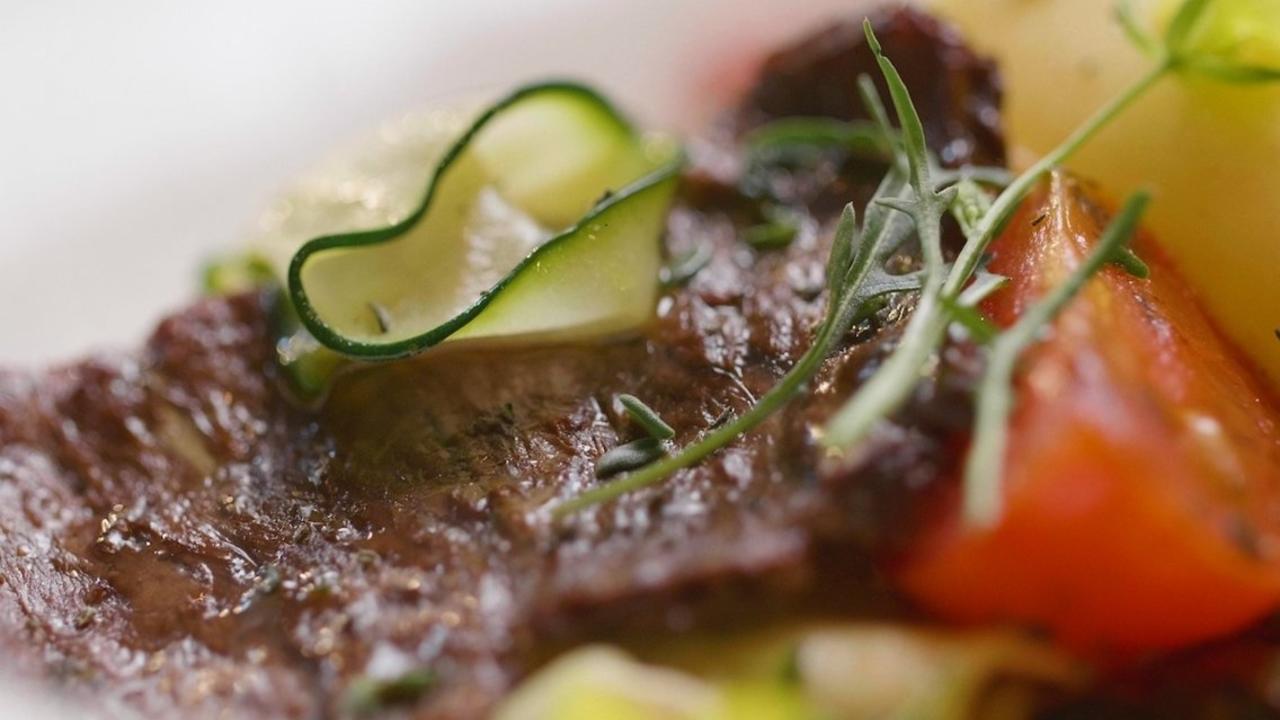December 2018: The Month in Review

With much progress in the field, December marks the end of a successful year for cellular agriculture. Cellular agriculture is the field of growing animal products (like meat and egg white) from cell cultures instead of animals. Compared to conventional animal agriculture, cell ag provides a sustainable and more environmentally friendly way to produce the animal products for a growing population. Without requiring animals. From the very first cell-grown steak to a unique partnership, this article takes a look at what happened in cell ag during the month of December.
The First Cell-Based Steak
Aleph Farms is an Israeli startup that uses cellular agriculture to make cell-based beef. In May, Aleph Farms announced that they found a way to make a more structured and complex meat product through their proprietary tissue engineering platform. And their breakthrough this month was incredible.
Once thought to be one of the biggest challenges for the field, Aleph Farms produced the first cell-grown beef steak. Without requiring animals. In a recent Washington Post interview, Aleph Farms co-founder and CEO Didier Toubia acknowledged that they’re not just there yet. Toubia said they’re about “60-70%” of what they want their final cell-grown steak to taste like.

Just Wagyu Beef
Wagyu beef, anyone? Just announced a partnership with Toriyama Ranch, one of Japan’s most reputable Wagyu beef producers. In this contract, Just will source cow cells from the ranch’s high-end cows. To make cell-based Wagyu beef.
Wagyu beef is one of the most premium beefs in the world. It will be interesting to see if cell-grown Wagyu meat can deliver the same flavour profile. Producing the special type of meat via cell ag could cut the price drastically and make it more affordable. If successful, this opens opportunities for cell ag companies to produce other high-end meats at a lower cost and make the product more accessible and affordable than before.

New Labels for GM Foods
The US Department of Agriculture (USDA) announced new labelling requirements for genetically modified (GM) foods. Starting in 2022, all foods that contain ingredients that are genetically modified will be labelled ‘Bioengineered’. Notably, products that come from livestock that are fed bioengineered crops will be exempt from the label requirement, such as meat, milk, and eggs. Dairy products that contain ingredients from GM microbes, however, will be labelled as bioengineered.
It will be interesting to see how this new labelling rule applies to cellular agriculture. While no final cell ag product contains any genetically modified cells, the process used to create animal-free dairy proteins and collagen involves using bioengineered yeast cells. Until then, there are quite a few lessons that cellular agriculture companies can learn from the past mistakes of GM foods.

McDonald's Goes Vegan. For Now?
McDonald’s headquarter in Chicago will be trailing a vegan burger to see how consumers respond to it. In August, Tyson Foods acquired Keystone Foods, the chicken nugget suppliers of McDonald’s in the US. Tyson has also previously invested in cell ag companies Memphis Meats and Future Meat Technologies. Could we see a future where McDonald’s is serving cell-based chicken nuggets?
Conclusion
A recent WRI report stated that beef consumption needs to fall by 50% to prevent catastrophic climate change. Requiring many resources and emitting greenhouse gases, raising beef cattle is an unsustainable way to feed a growing global population. Yet, with Aleph Farms and other cell ag companies working to make animal-free meats, we may not need to cut back on meat. Just the way its produced.
Aleph Farms’ breakthrough steak may be a tipping point for the field. Many thought that it would take years before a cell ag company could produce an accurate cell-based steak. Aleph Farms thought otherwise. While there is still some way to go to perfect their product, the first cell-based steak taste test was promising. If a prototype cell-based steak can be made today, how long will it be until we can find one in stores?
From the very start of the year in January, 2018 was set to be a big year for cellular agriculture. Interestingly, December marked only the second month in 2018 without a major investment. Until November, there had been a major investment announced every month in 2018.
With constant investments, awards, and partnerships throughout the year, 2018 may be the year that cellular agriculture became more than an idea of how to sustainably feed the world.
2018 showed that cellular agriculture can be done. It can become the future of food.
Let’s see what the next year brings for the field!
Stay connected with CellAgri
Join our mailing list to receive the latest news and updates weekly from the cellular agriculture industry. Your information will not be shared.



